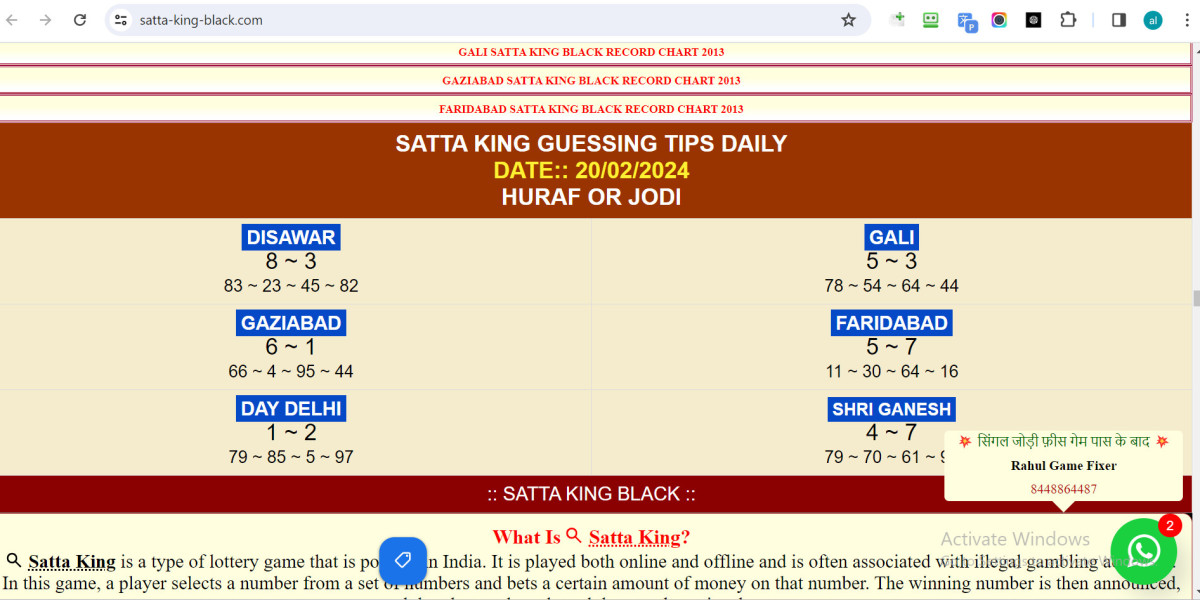In the realm of games of chance and speculative ventures, few terms hold as much weight as satta. Originating from the Hindi language, satta encapsulates the essence of betting and wagering, drawing individuals into its intricate web of risk and reward. In this article, we embark on a journey to uncover the mysteries of satta, exploring its origins, complexities, and societal implications.
Satta has a rich and storied history, rooted in the cultural heritage of India. Its inception can be traced back to the pre-independence era, where it emerged as a means of betting on the fluctuating rates of commodities such as cotton. Over time, satta has evolved into a diverse spectrum of gambling activities, spanning sports betting, casino games, and speculative ventures.
A defining characteristic of satta is its clandestine nature. Operated through underground networks and illicit channels, it operates beyond the realm of conventional regulation, presenting challenges for authorities seeking to curb its proliferation. Despite legal constraints and societal disapproval, satta continues to thrive, fueled by demand and the allure of quick wealth.
The allure of satta lies in its simplicity and the promise of substantial winnings. Participants engage in satta by placing bets on various outcomes, ranging from sports matches to political events, in the hopes of securing favorable returns. However, the risks associated with satta are significant, with the potential for financial loss, legal repercussions, and personal hardship.
Despite these risks, satta remains deeply ingrained in the cultural fabric of India. Its influence extends beyond mere entertainment, shaping social dynamics and economic behavior. For some, satta serves as a source of excitement and recreation, while for others, it represents an avenue for income generation or wealth accumulation.
However, it is essential to approach satta with caution and awareness of the potential consequences. The allure of quick riches can often lead individuals down a path of financial ruin and personal turmoil. Moreover, the underground nature of satta exposes participants to legal jeopardy, with severe penalties for those caught engaging in such activities.
In conclusion, satta embodies the eternal dichotomy between risk and reward, temptation, and consequence. While its allure may be irresistible, it is imperative to exercise prudence and responsibility when participating in gambling activities. As we navigate the labyrinthine world of satta, let us do so with caution, mindful of the risks and rewards that accompany this captivating pursuit.
